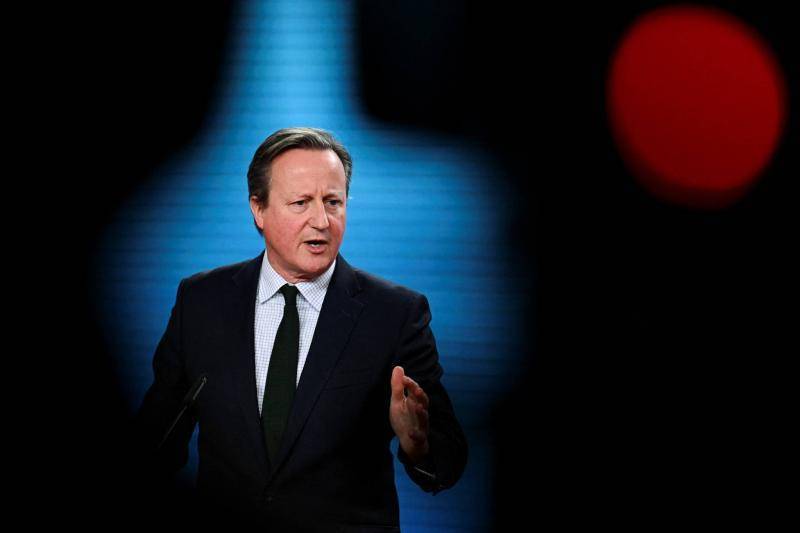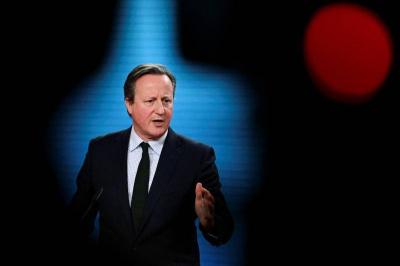British Foreign Secretary David Cameron accused the Kremlin on Thursday of subjecting prominent British-Russian opposition figure Vladimir Kara-Murza to "humiliating and inhumane conditions" since his imprisonment two years ago. Kara-Murza, one of the most prominent critics of President Vladimir Putin, was sentenced to 25 years in prison last year, the longest known sentence for a Russian opposition figure in recent times. Russian authorities charged Kara-Murza with "treason" after he accused Russia, in a speech delivered in the United States, of committing "war crimes" in Ukraine.
The 42-year-old suffers from serious health issues, which his wife Evgenia and his lawyers say are the result of two poisoning attempts orchestrated by the Russian Federal Security Service in 2015 and 2017. In a statement marking the second anniversary of his arrest, Cameron described the charges against Kara-Murza as "fabricated" and urged Moscow to release him immediately on humanitarian grounds. He stated, "Kara-Murza is a dedicated human rights activist striving for a democratic Russia and a vocal critic of the war in Ukraine, which the Kremlin saw as a threat." He added, "Putin imprisoned him in an attempt to silence him."
Cameron accused Russian authorities of "disregarding" the deterioration of Kara-Murza's health, adding, "He is currently subject to humiliating and inhumane conditions in prison, clearly aimed at inflicting further harm on his physical and mental well-being." The former Prime Minister revealed that Russian authorities are denying Kara-Murza the medical treatment he requires. He said, "We are sending a clear message that the United Kingdom will not tolerate this abhorrent treatment of one of our citizens."
Concerns about Kara-Murza's fate have increased following the death of Russian opposition politician Alexei Navalny in a northern prison last February. Evgenia Kara-Murza told reporters in Geneva last month that the poisoning attempts left her husband suffering from a serious condition called neuropathy, which could lead to paralysis. Moscow's crackdown on dissent has intensified since its invasion of Ukraine in February 2022, with the Nobel Prize-winning rights group Memorial reporting around 700 political prisoners currently in Russia.




